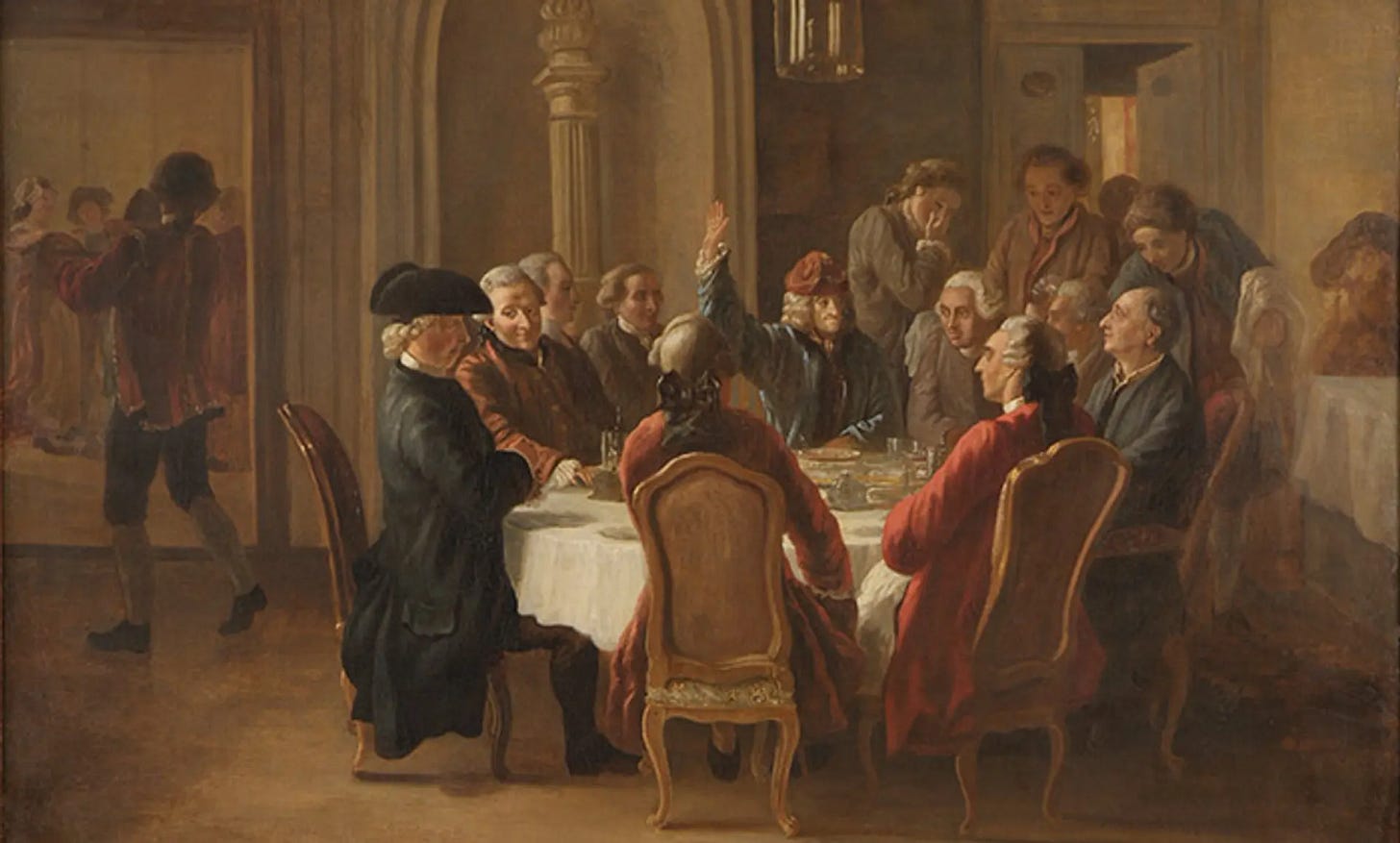Letter II: On Fidelity to the Forgotten Creed
Liberty, once severed from virtue and reason, is not liberty but license—an orphan child, raised by demagogues and devoured by mobs.
“Liberty, once severed from virtue and reason, is not liberty but license—an orphan child, raised by demagogues and devoured by mobs.” —Letters to the Forgetful Republic
Written from Bangkok, Thailand

Dear Architect of Tomorrow’s Amnesia,
There is something disorienting—and quietly humbling—about standing in a city like Bangkok. The sky is freckled with glass towers, digital billboards, and high-speed railways. Below, incense wafts from shrines nestled between food stalls and motorbike traffic. The old and the new coexist—not in perfect harmony, but in determined proximity. It is a place that has modernized furiously, yet not forgotten its soul.
I do not write this as a wide-eyed tourist romanticizing temples in twilight. I write as a child of the American experiment—one that once dared to wed the ancient and the new, liberty and order, revolution and restraint. And as I walk beneath golden spires and steel scaffolds, I cannot help but reflect on our own republic, which once believed tradition and progress could be reconciled.
That belief is no longer in fashion.
What forged this republic was neither the screed of radicals nor the thunder of mobs. It was the quiet, unyielding resolve of classical liberalism—an ideal that was once both the conservative instinct and the progressive hope, a creed that dared to yoke liberty to law, enterprise to ethics, and rights to responsibilities. It trusted the individual more than the ideology and shaped a nation that strove to be, in equal measure, free and ordered.
That tradition now lies in eclipse.
In today’s politics, there is no “conservative right” in any coherent sense. Nor is there a “liberal left.” Those terms now survive mostly as nostalgia or insult. In their place stand two coalitions—both populist, both puritan in temperament, both contemptuous of the liberal tradition they claim to transcend.
The populist right has forsaken Burke for Bannon. It regards constitutional restraint as weakness, derides the marketplace of ideas as effete, and scoffs at prudence as betrayal. It accuses anyone with a memory longer than the news cycle of being a “neocon”—a term now so diluted it simply means not sufficiently angry. Nationalism has supplanted limited government. Tribal grievance has replaced moral conservatism. The rule of law is reduced to a tool of power, and power is justified by the passions of the mob. Liberty is invoked—but only for the favored.
The progressive left, meanwhile, has discarded Mill for Marx. It shames procedural justice as complicity and condemns pluralism as cowardice. It dismisses anyone who questions its dogmas as a neoliberal relic. Equity by decree has usurped equality before the law. “Liberal” itself has become an epithet—a symbol of spinelessness, centrism, or bourgeois fence-sitting. In its moral fervor, it reimagines liberalism not as the architecture of reform, but as the edifice to be dismantled.
And yet—here is the bitter symmetry—these opposites mirror one another.
Economically, both preach redistribution, though in different tongues. The populist right whispers sweet nothings to the “forgotten middle class,” calling for tariffs, subsidies, and national industrial schemes worthy of mid-century statism that would make FDR blush. The progressive left, with less pretense, calls for wealth taxes, nationalized healthcare, and redistribution as moral imperative. Different hymns, same church: the gospel of grievance, the sacrament of state intervention.
Both scorn capitalism while feeding on its surplus. Both speak the language of working-class betrayal. Both wrap resentment in moral language. And both define their camps through purges, not principles.
The populist right denounces its elders as traitors to the cause, labeling them “neocon,” “globalist,” or “Uniparty.” The progressive left casts out its moderates for being ineffective liberals, for defending an irredeemable system. Each demands orthodoxy, enforced not by reasoned debate but by excommunication.
Where, then, is one to stand who remains faithful to liberty with limits, to progress without utopia?
I am a classical liberal—not from sentimentality for powdered wigs or gold standards, but from conviction. I believe that human dignity precedes ideology, that tradition can coexist with reform, and that freedom requires both structure and soul. I hold that a free market—of goods and ideas, imperfect though it may be—remains the greatest engine of innovation the world has known. And I reject the notion that we must choose between authoritarian nostalgia and revolutionary frenzy.
Yet for such convictions, I find myself homeless.
Too skeptical for the zealot, too principled for the partisan. Too fond of freedom for the authoritarians, and too wary of utopians for the ideologues. I am not an American conservative as it is now defined. Nor am I an American liberal in its modern form. I belong to the older republic—the one that dared to govern with both humility and hope, that cherished institutions as the bulwark against tyranny, and that honored disagreement as a sign not of disloyalty, but of liberty.
And so I write, not in acrimony, but in remembrance.
Before conservatism became populism, and before liberalism became progressivism, there was classical liberalism. It was not a halfway point between extremes. It was a full-throated philosophy of dignity, limits, and possibility.
It still is.
Yours in the ruins of reason,
—Thought Criminal







A magnificent letter! Your gift for language shines through each thought development and the progression of ideas.
I understand your homelessness… and share your convictions about liberty, limits, principles, and progress. I love your creed properly yoked to law, ethics, and responsibilities so that liberty, enterprise, and rights can enjoy their proper measure in a healthy society.
The Thought Criminal is prosecuting a much needed case. Please continue the argument. The Forgetful Republic looks guilty as charged. Yet, I have hope in the power to reboot and reform the great experiment of self-government!
To liberty, virtue, and reason! And a dash of dignity for all!
Incredibly well written. I will save this as an explanation for people who don't see it.